Removal Procedure
- Relieve the fuel system pressure. Refer to Fuel Pressure Relief for the 1.0L engine.
- Disconnect the negative battery cable.
- Remove the air filter, resonator, and snorkel assembly. Refer to Air Cleaner Assembly Replacement for the 1.0L engine.
- Disconnect the radiator lower hose and drain coolant (1). Refer to Radiator Replacement .
- Remove the throttle body assembly. Refer to Throttle Body Assembly Replacement for the 1.0L engine.
- Disconnect the PCV hose and valve. Refer to Positive Crankcase Ventilation Valve Replacement .
- Remove the fuel rail and injector (1). Refer to Fuel Injector Replacement for the 1.0L engine.
- Remove the exhaust gas recirculation (EGR) valve. Refer to Exhaust Gas Recirculation Valve Replacement for the 1.0L engine.
- Loosen the lock nut and disconnect the throttle cable (4).
- Disconnect the manifold absolute pressure (MAP) sensor connector (2).
- Disconnect the evaporative emission canister solenoid connector (1).
- Disconnect the brake vacuum tube (5).
- Disconnect the intake air temperature (IAT) sensor connector.
- Remove the intake manifold main bracket bolts, only upper 2.
- Remove the intake manifold upper bolt (1), lower nut (2) and subsidiary bracket (3).
- Remove the intake manifold nuts and bolts.
- Remove the intake manifold from the cylinder head.
- Disconnect the intake manifold gasket from the intake manifold (2).
- Inspect the gasket for cracks, hardening, swelling or damage.
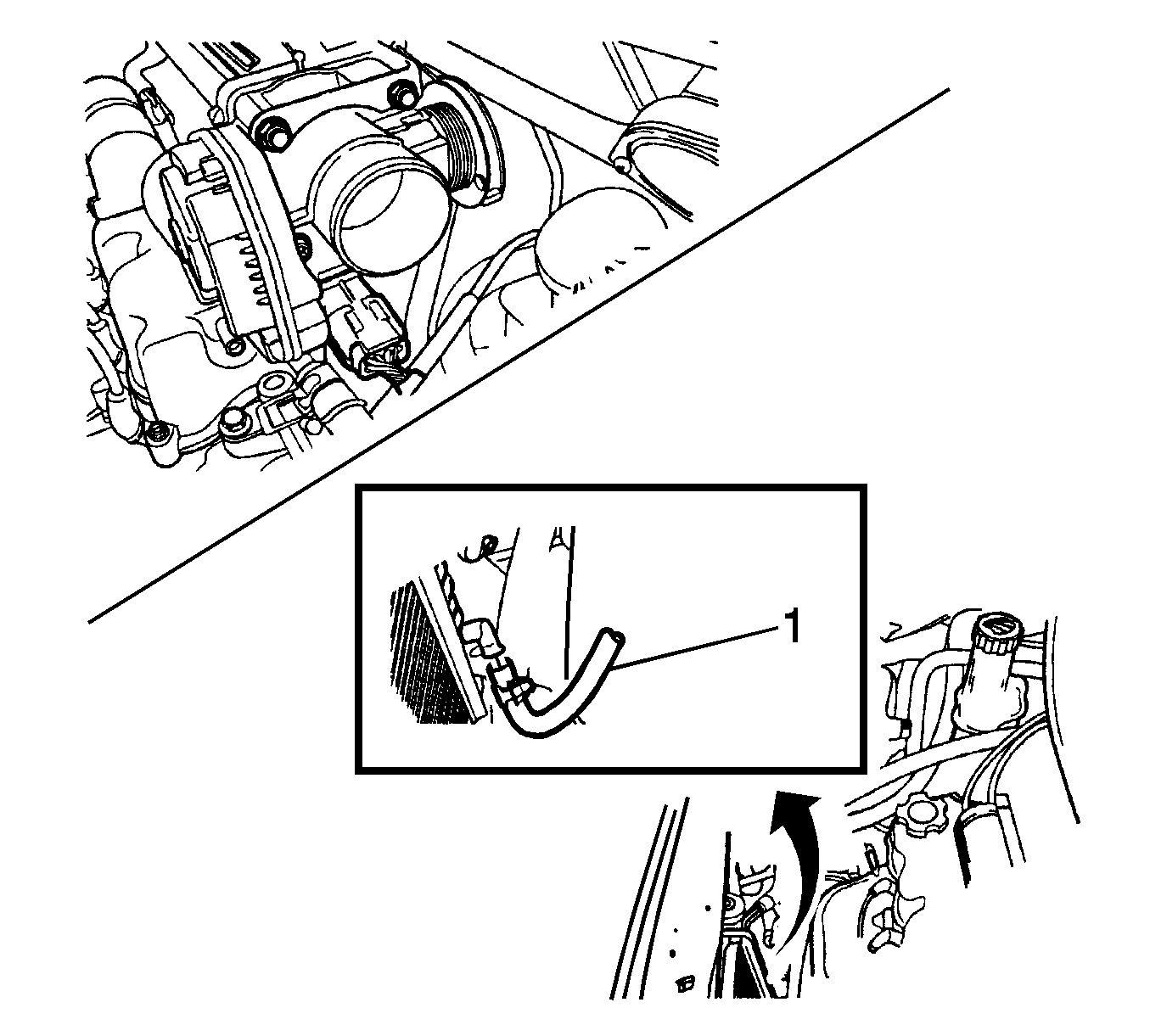
Caution: Remove the fuel tank cap and relieve the fuel system pressure before servicing the fuel system in order to reduce the risk of personal injury. After you relieve the fuel system pressure, a small amount of fuel may be released when servicing the fuel lines, the fuel injection pump, or the connections. In order to reduce the risk of personal injury, cover the fuel system components with a shop towel before disconnection. This will catch any fuel that may leak out. Place the towel in an approved container when the disconnection is complete.
Caution: Refer to Battery Disconnect Caution in the Preface section.
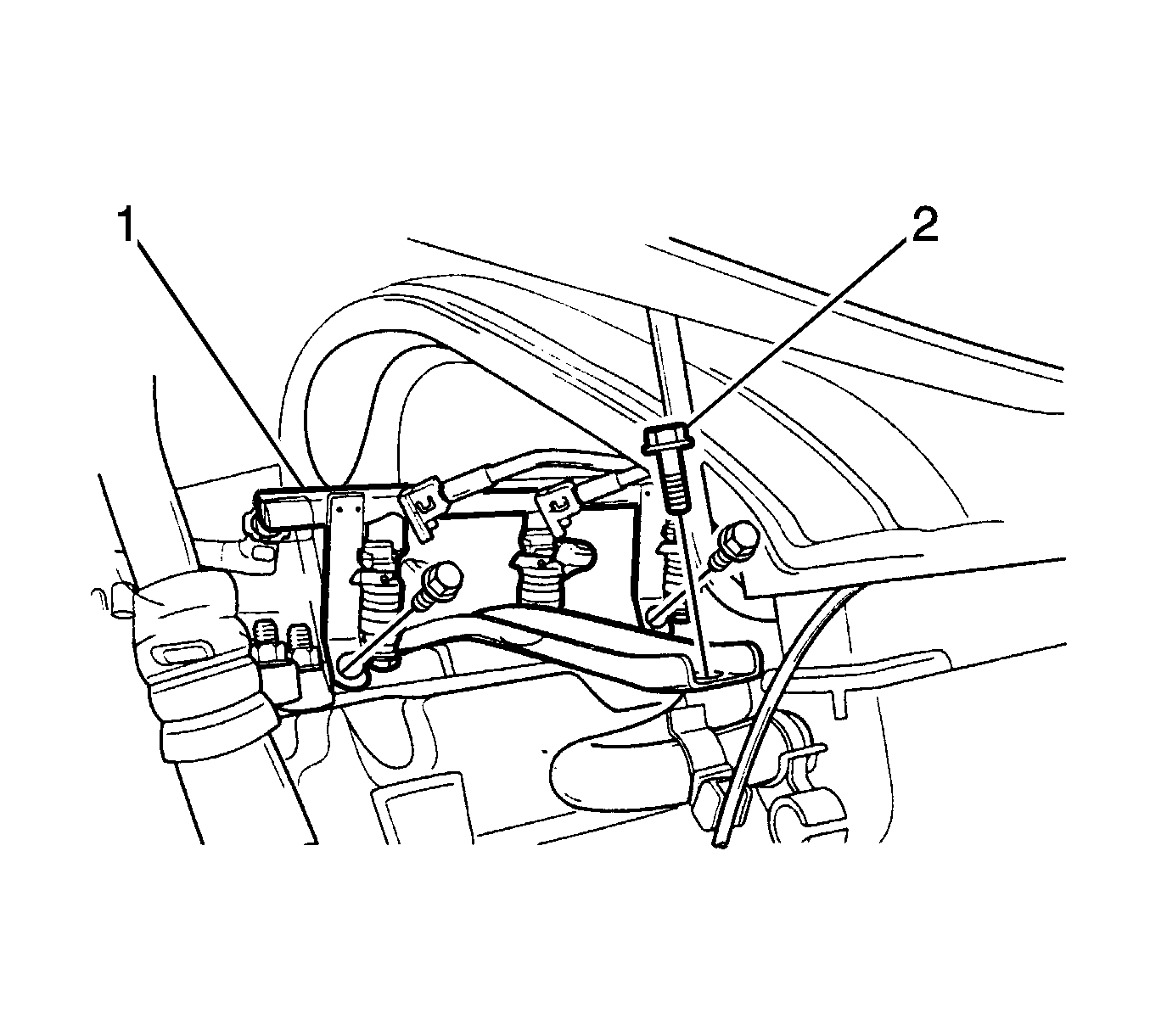
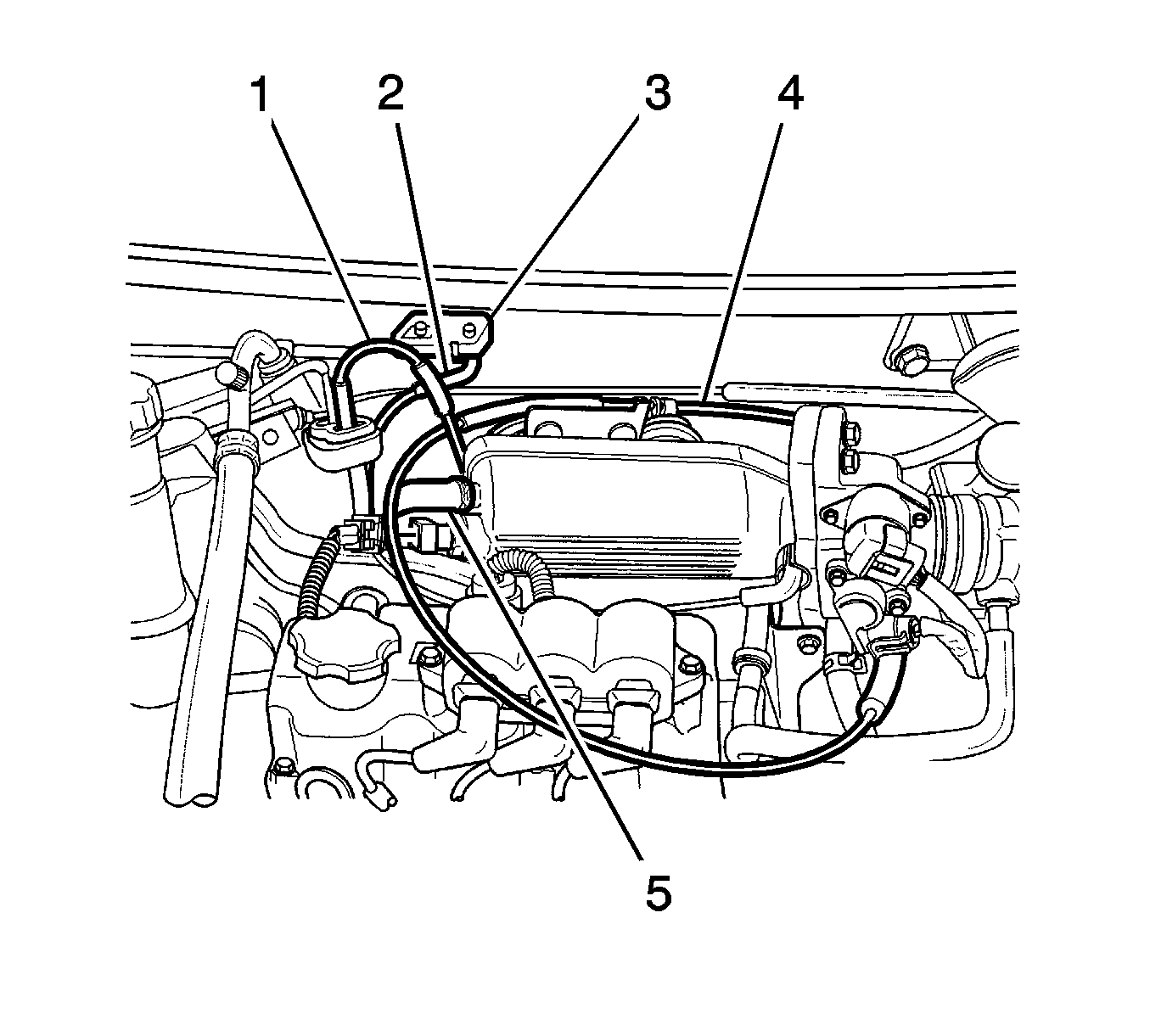
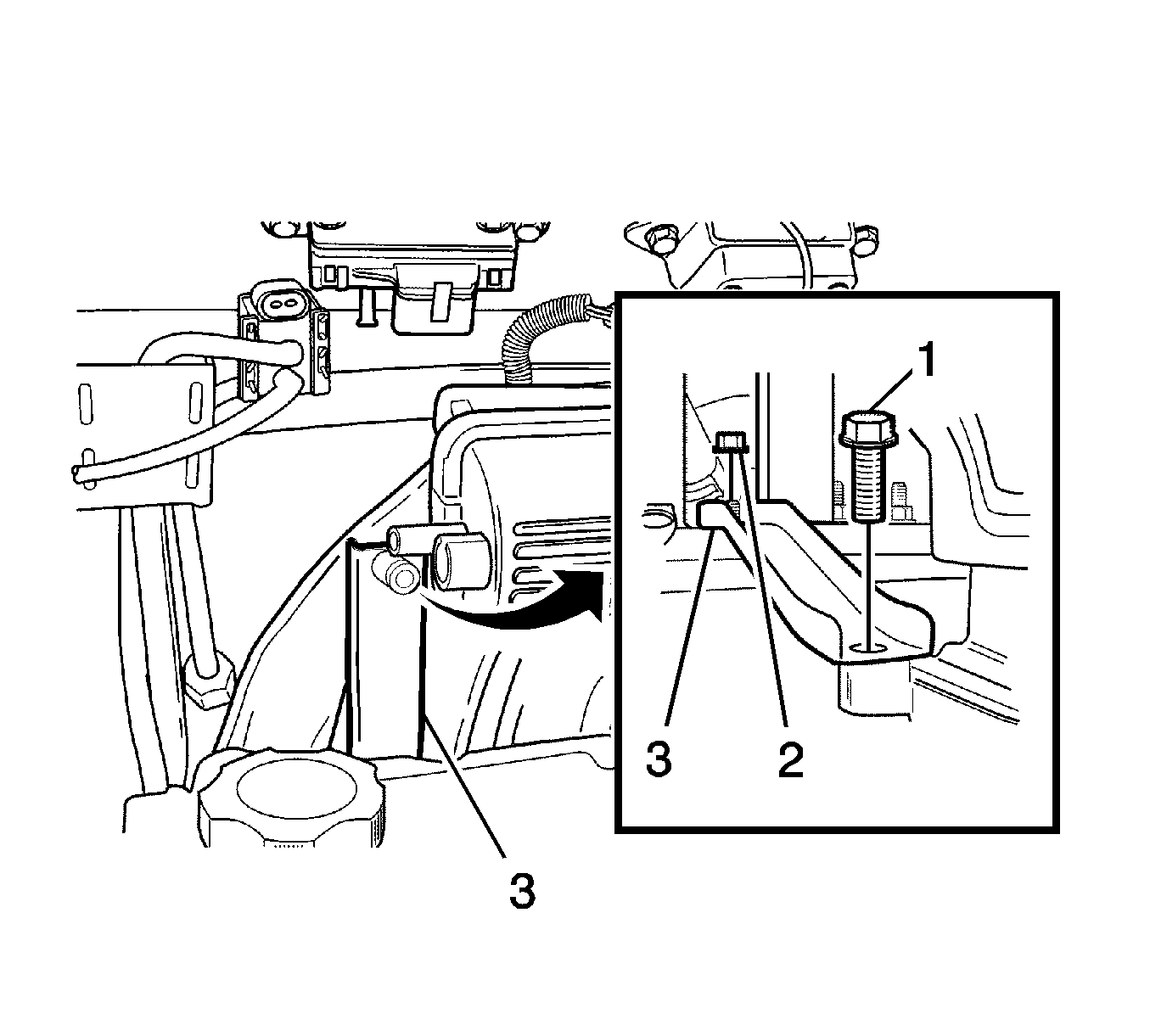
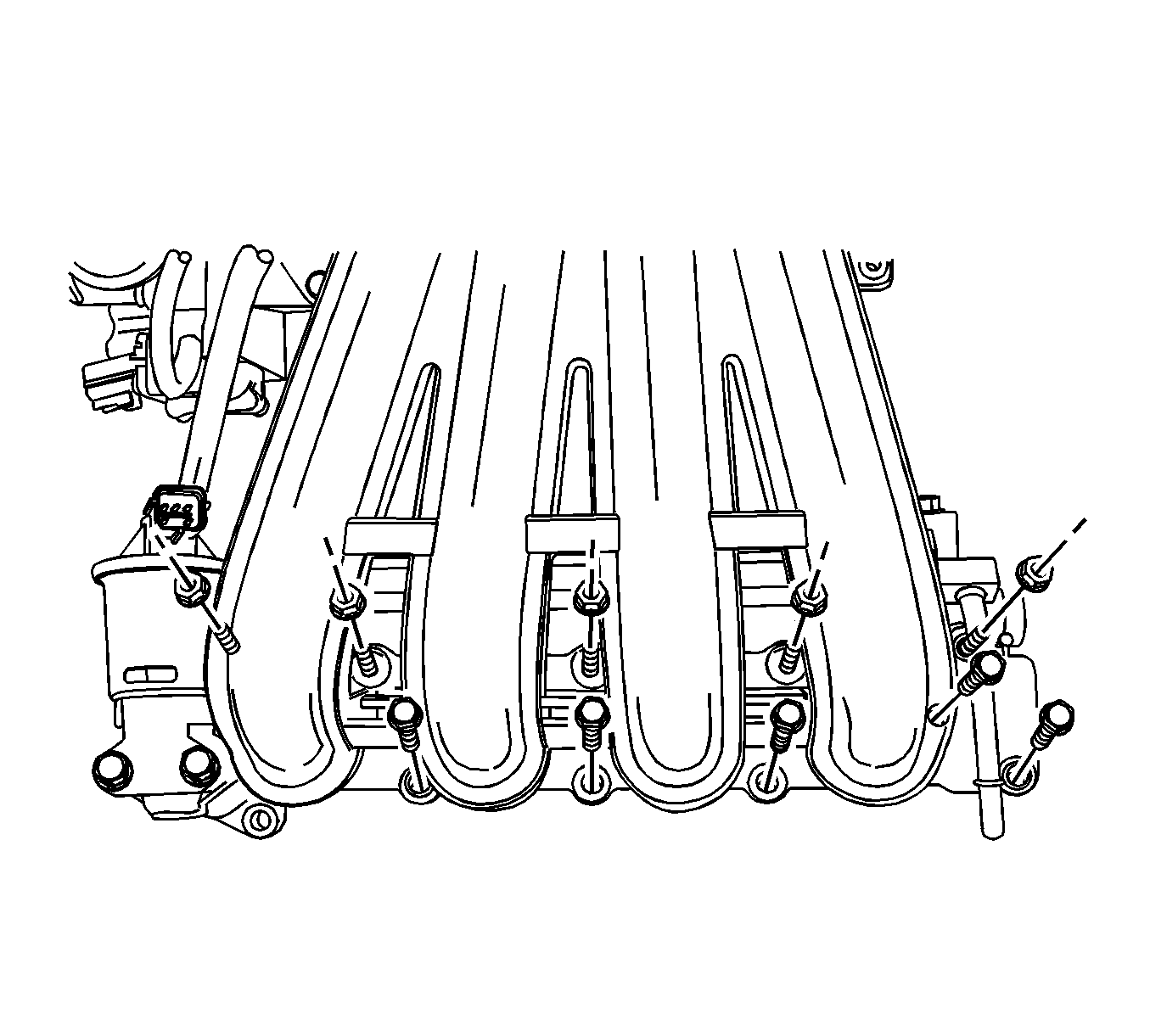
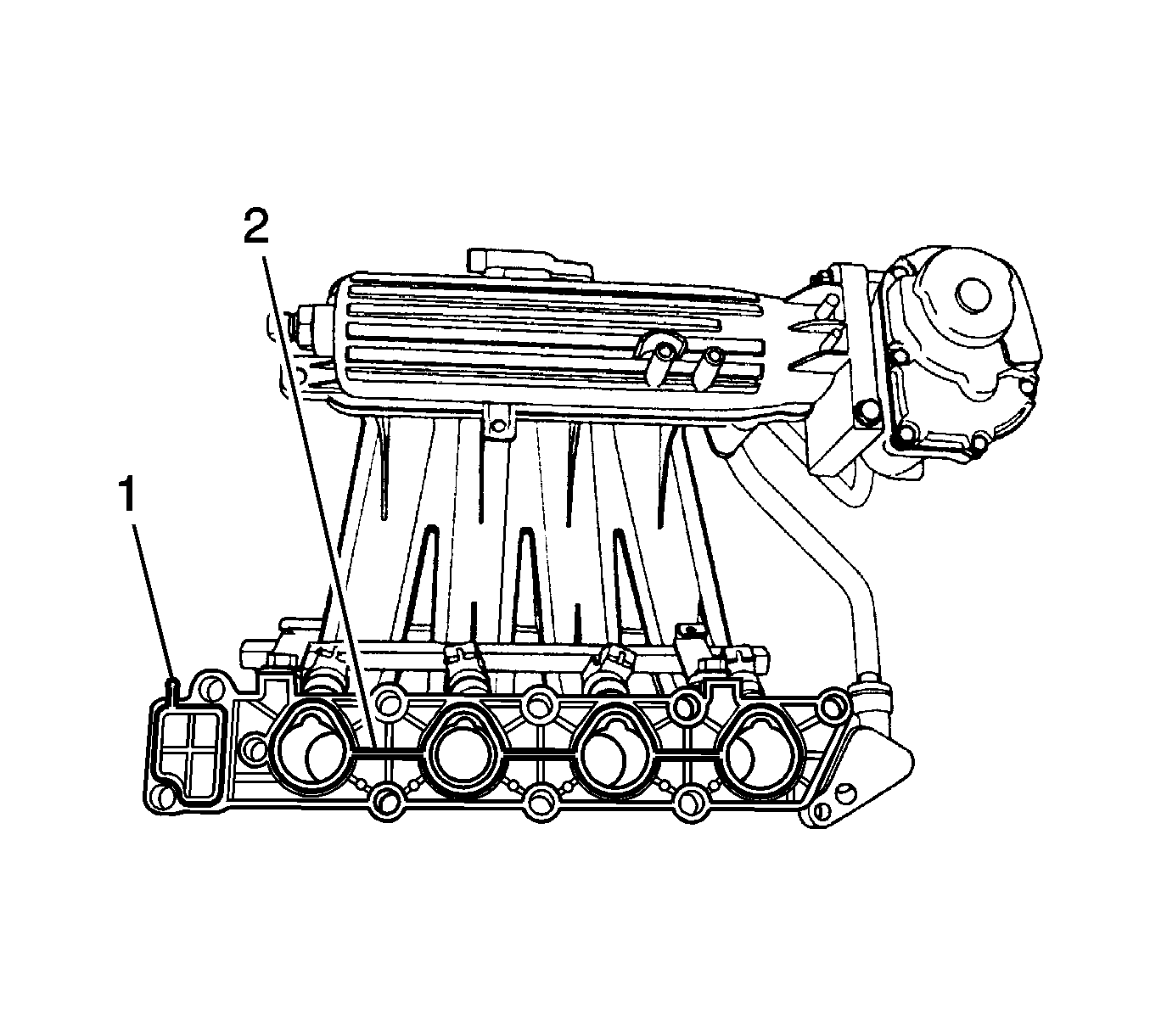
Important: Carefully remove the gasket pulling the gasket upper position (1).
Installation Procedure
- Connect the intake manifold gasket to the intake manifold (2).
- Install the intake manifold to the cylinder head.
- Install the intake manifold nuts and bolts in numerical order.
- Install the intake manifold subsidiary bracket, lower nut (1) and upper bolt (2).
- Install the upper 2 intake manifold main bracket bolts.
- Connect the IAT sensor connector.
- Connect the brake vacuum tube (5).
- Connect the evaporative emission canister solenoid connector (1).
- Connect the MAP sensor connector (2).
- Connect the throttle cable and tighten the lock nut (4).
- Install the EGR valve. Refer to Exhaust Gas Recirculation Valve Replacement for the 1.0L engine.
- Install the fuel rail and injector (1). Refer to Fuel Injection Fuel Rail Assembly Replacement for the 1.0L engine.
- Connect the PCV hose and valve. Refer to Positive Crankcase Ventilation Valve Replacement .
- Install the throttle body assembly. Refer to Throttle Body Assembly Replacement for the 1.0L engine.
- Connect the radiator lower hose and fill radiator with coolant (1). Refer to Radiator Replacement for the 1.0L engine.
- Install the snorkel assembly, resonator, and air filter. Refer to Air Cleaner Assembly Replacement for the 1.0L engine.


Notice: Refer to Fastener Notice in the Preface section.
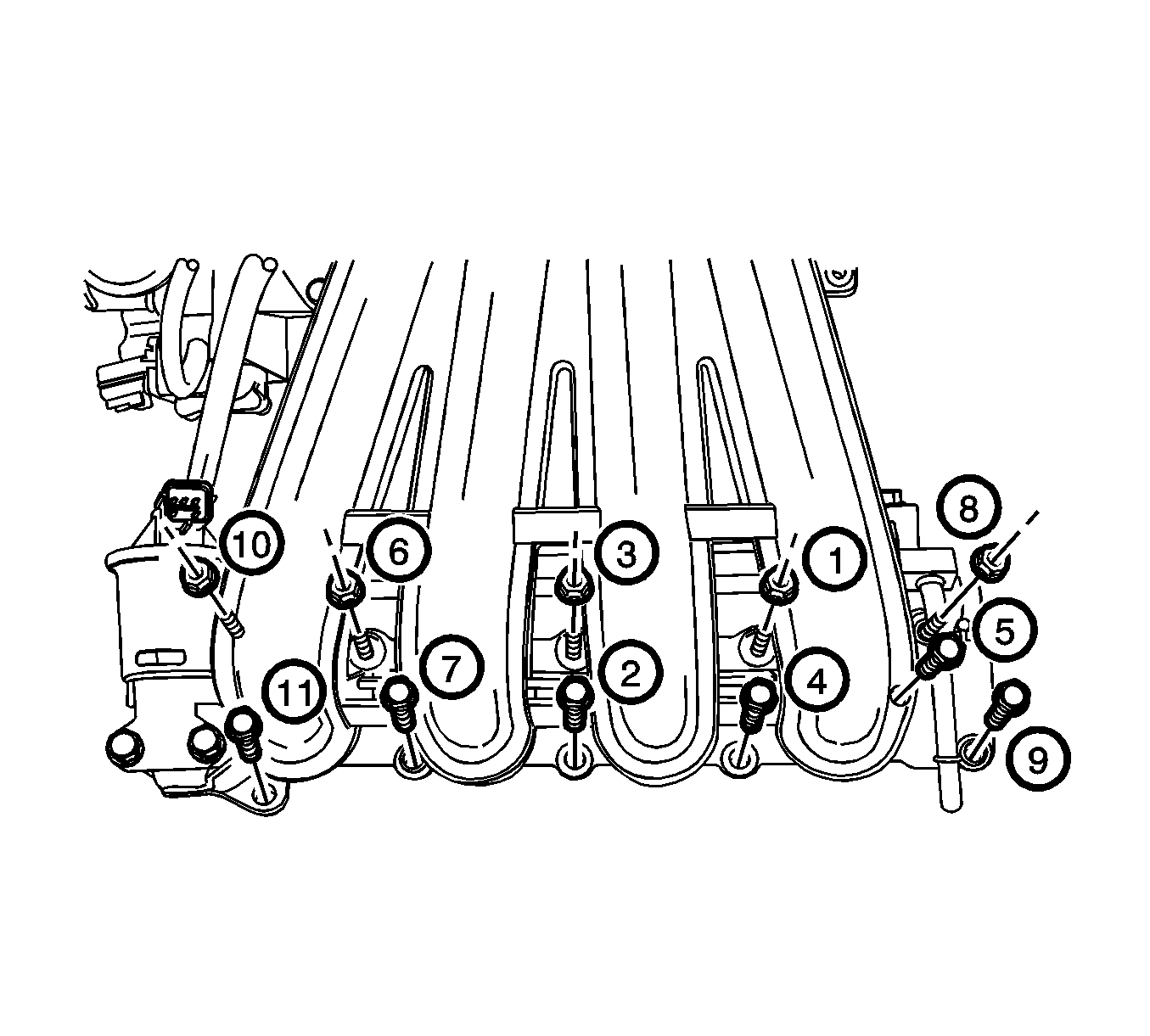
Tighten
Tighten the nuts to 15-19 N·m (11-14 lb ft).

Important: Tighten the bracket nut before all other nuts.
Tighten
| • | Tighten the intake manifold subsidiary bracket nut to 15-19 N·m (11-14 lb ft). |
| • | Tighten the intake manifold subsidiary bracket bolt to 9-12 N·m (80-106 lb in). |
Tighten
Tighten the nuts to 15-19 N·m (11-14 lb ft).



